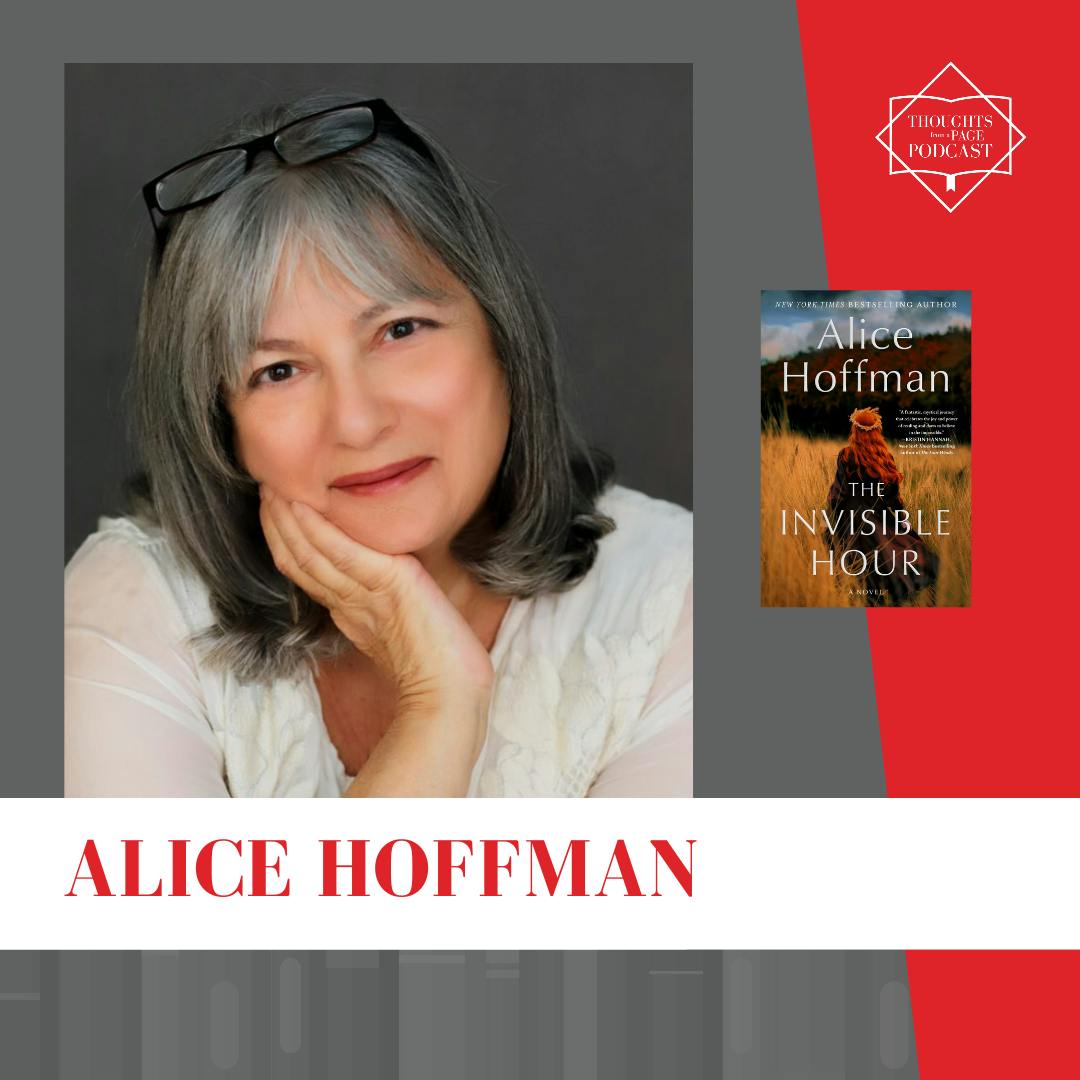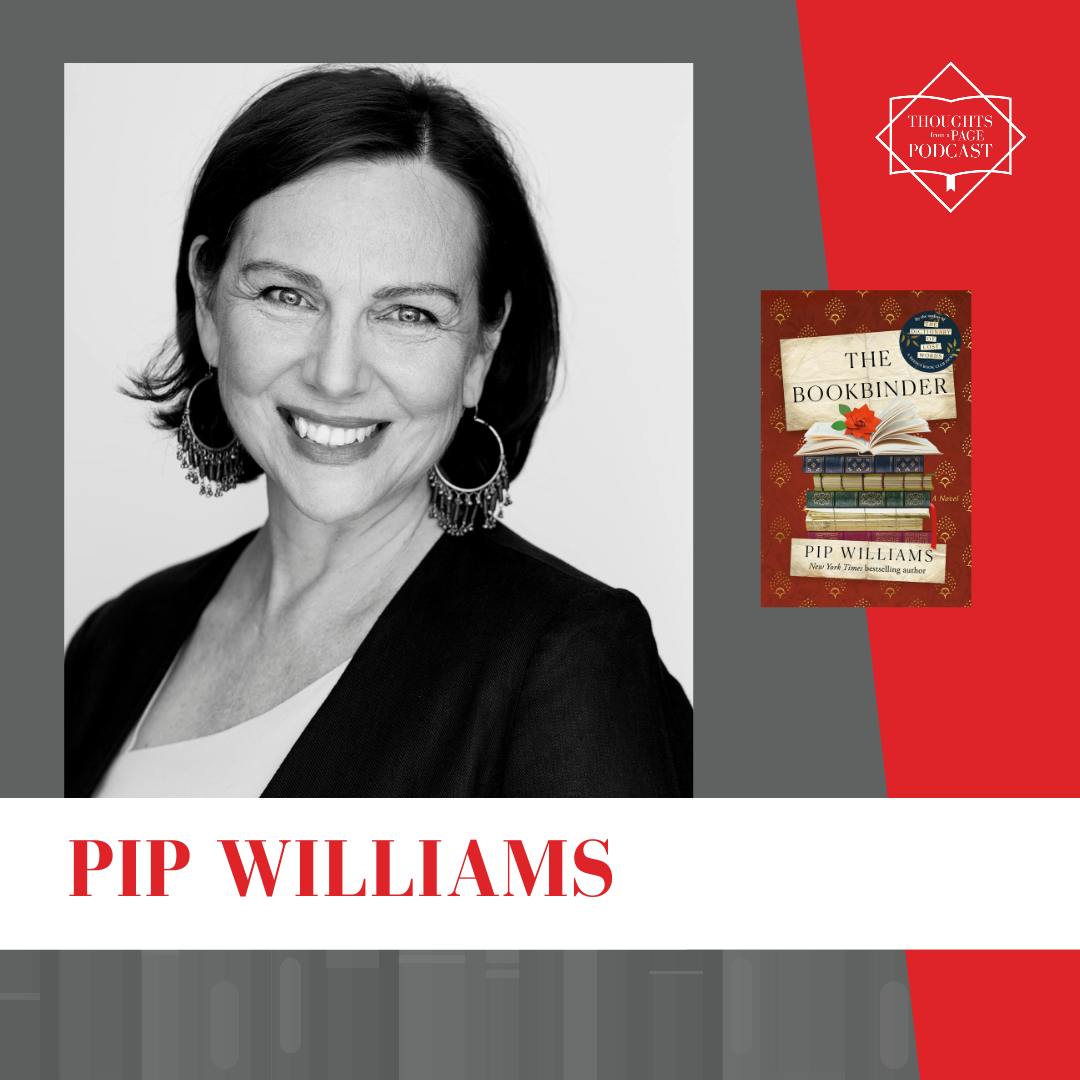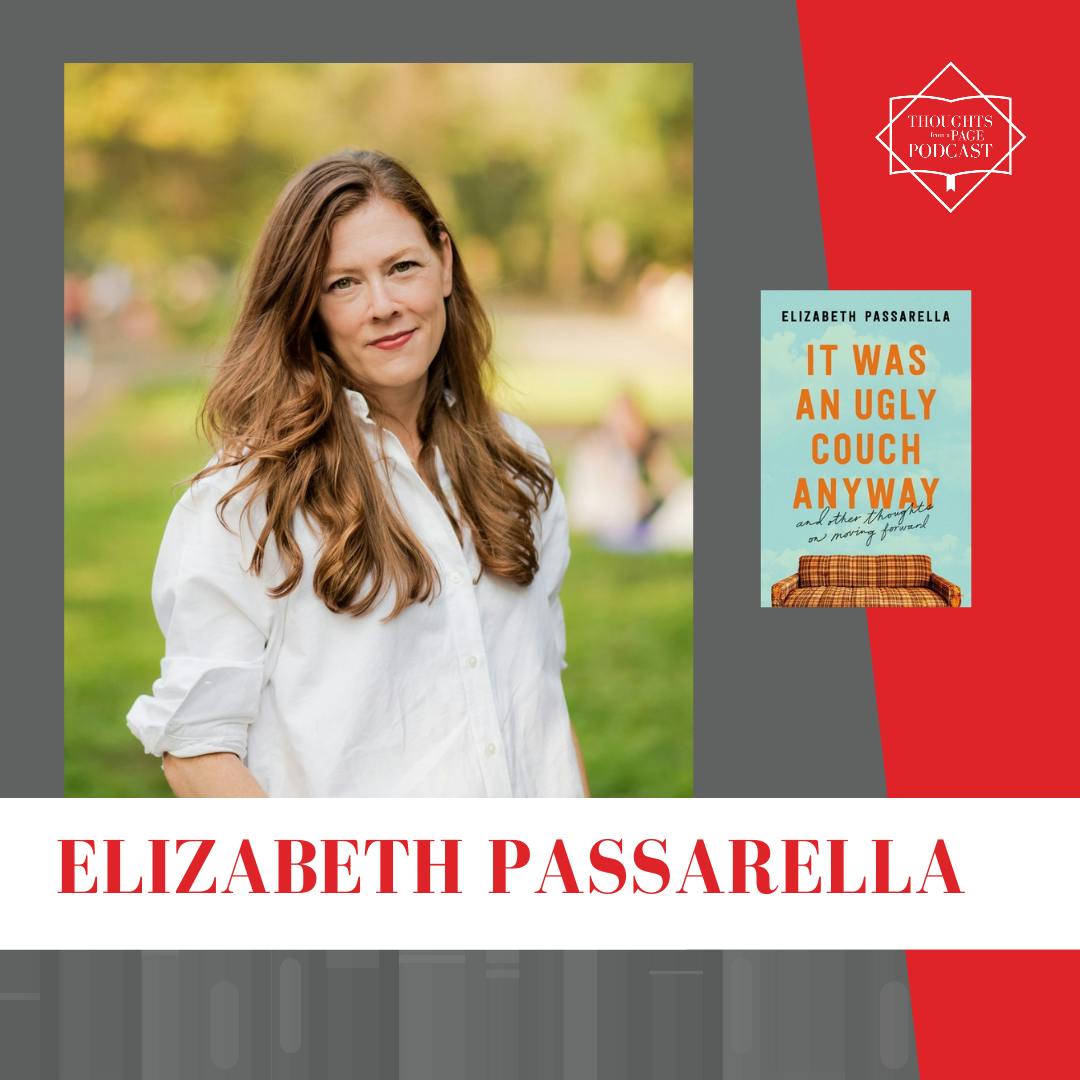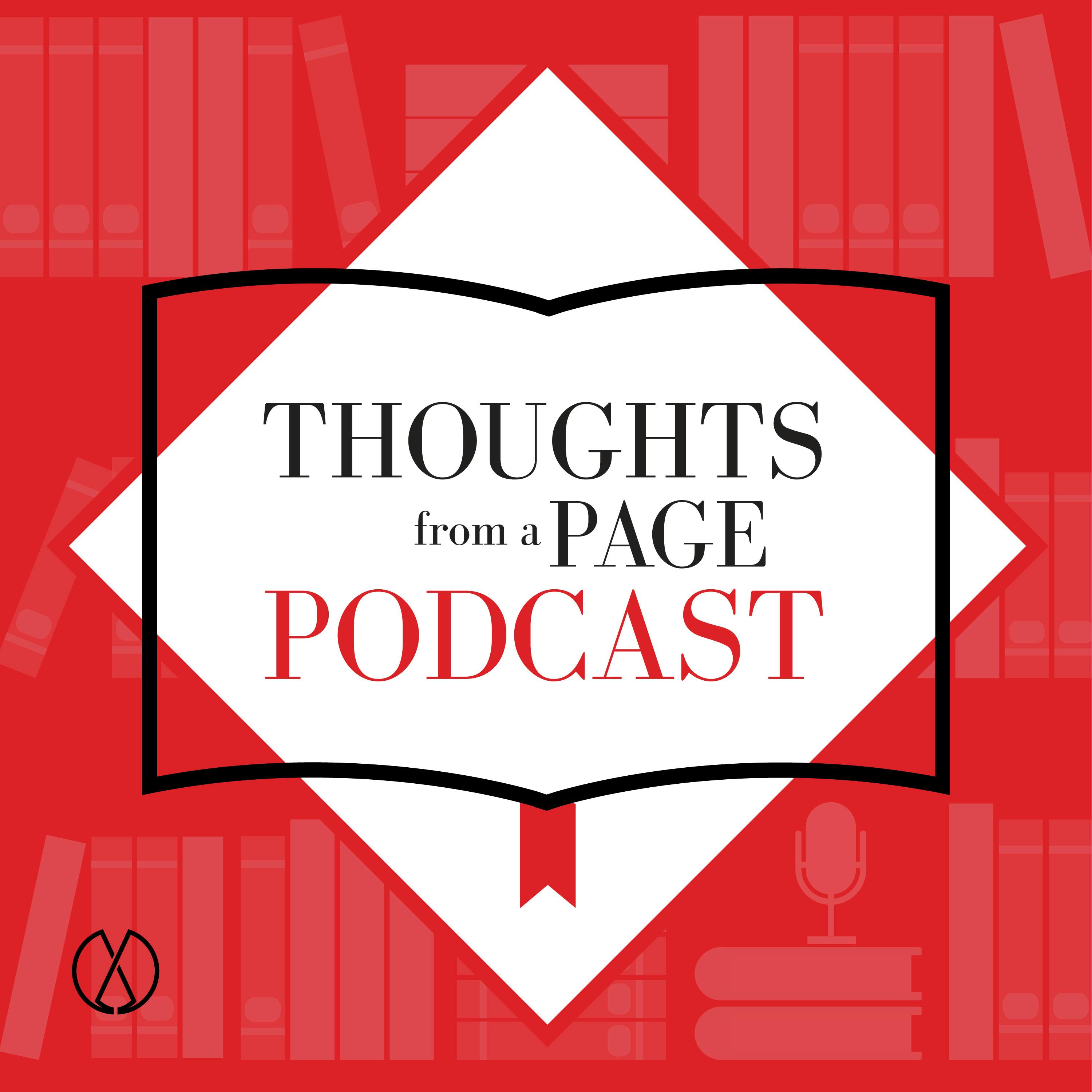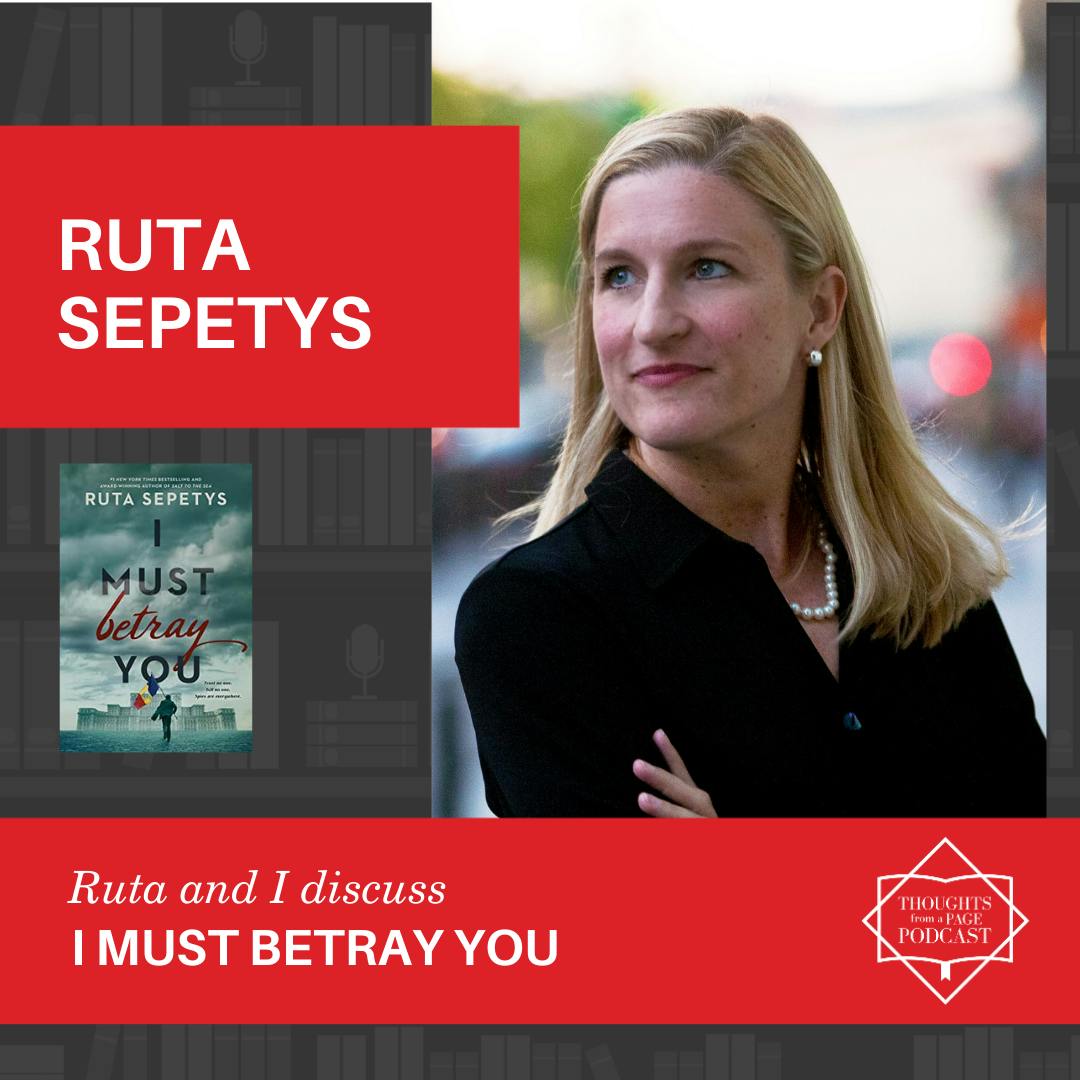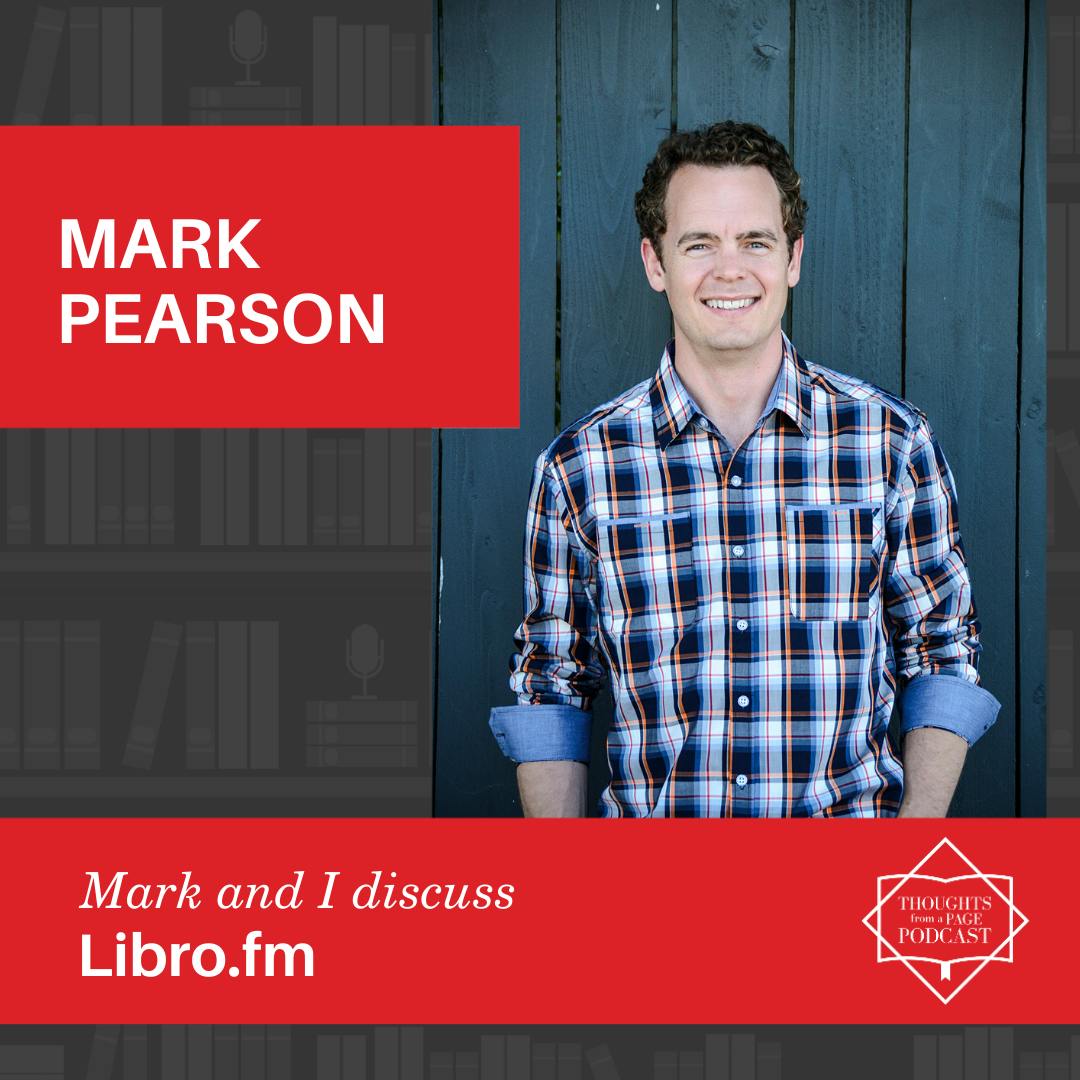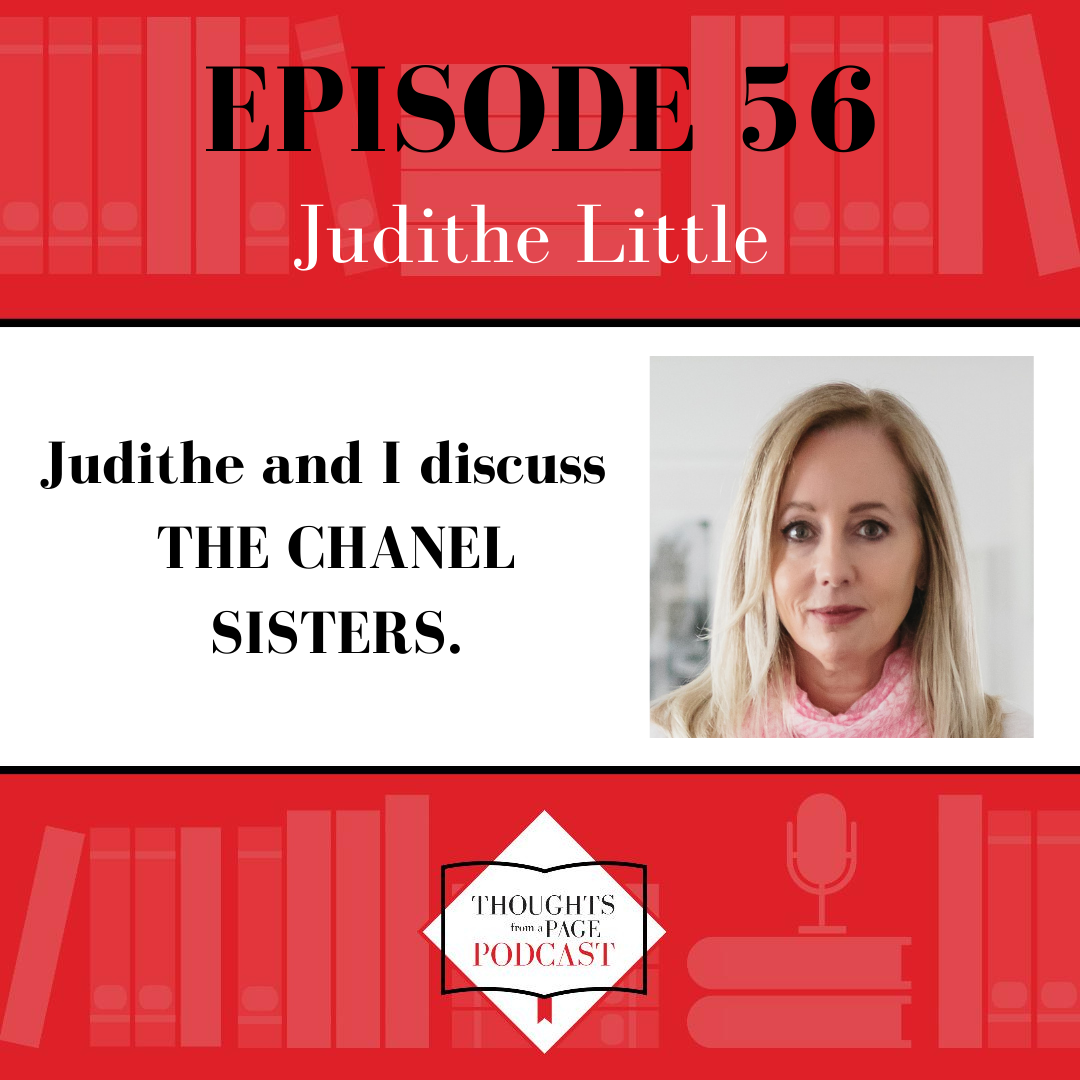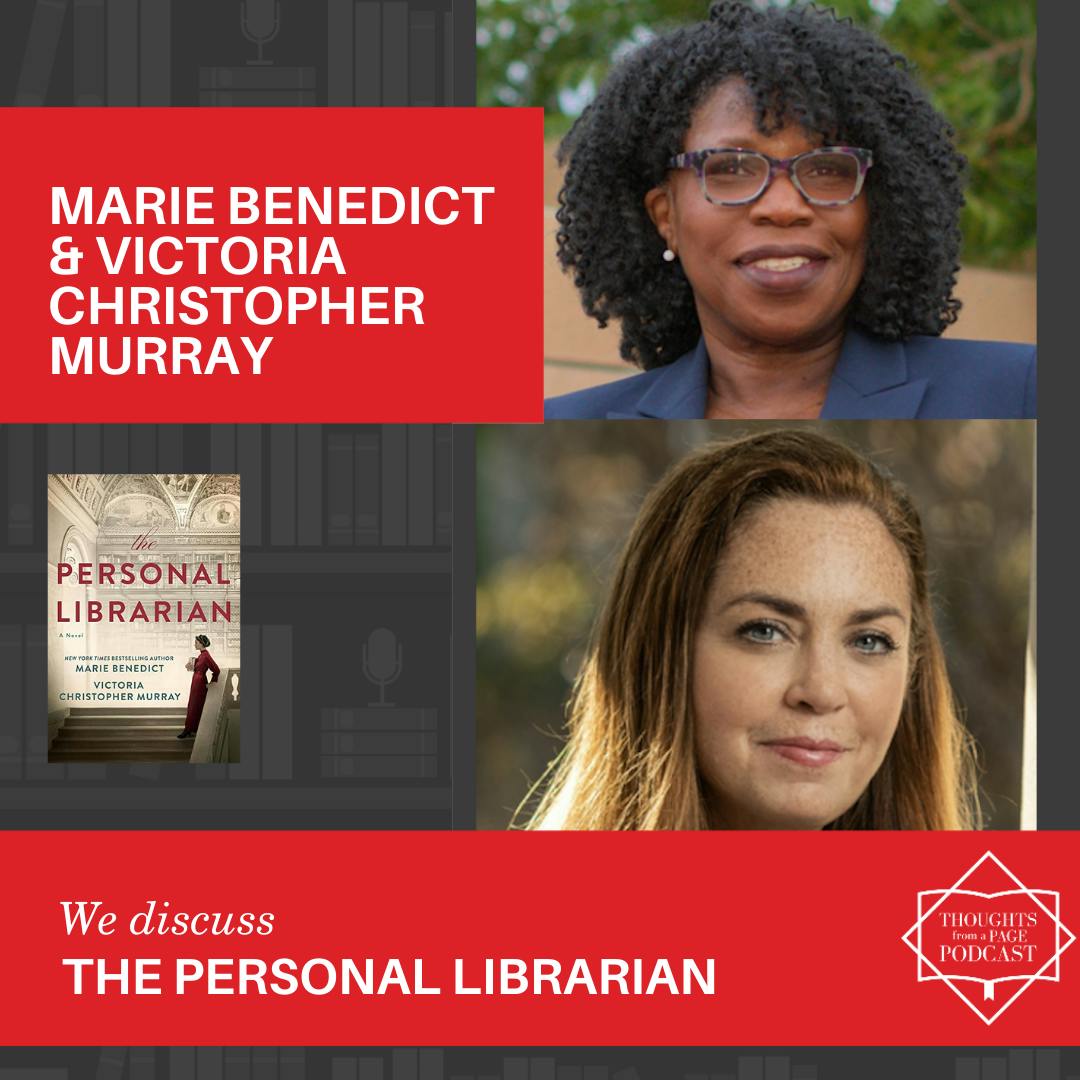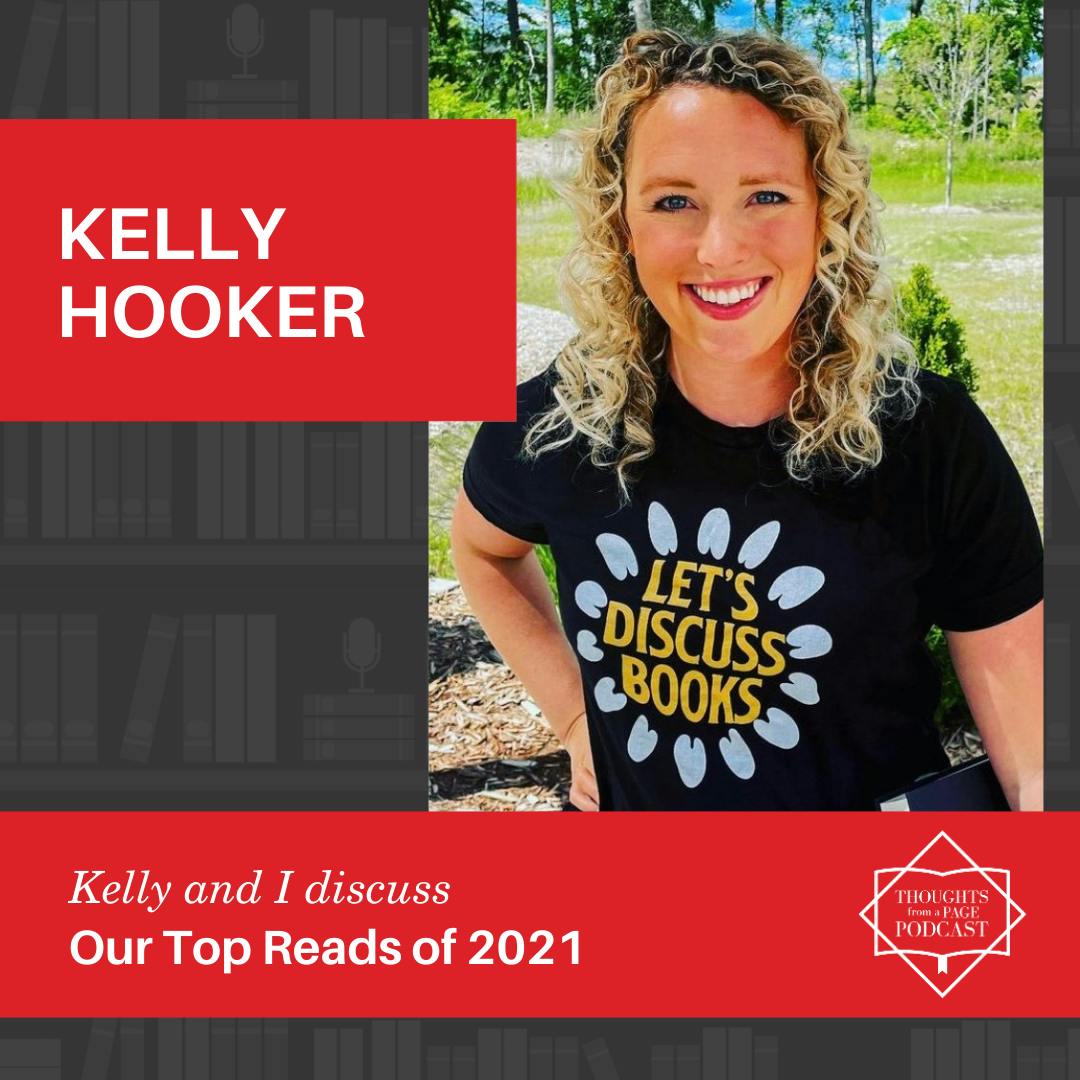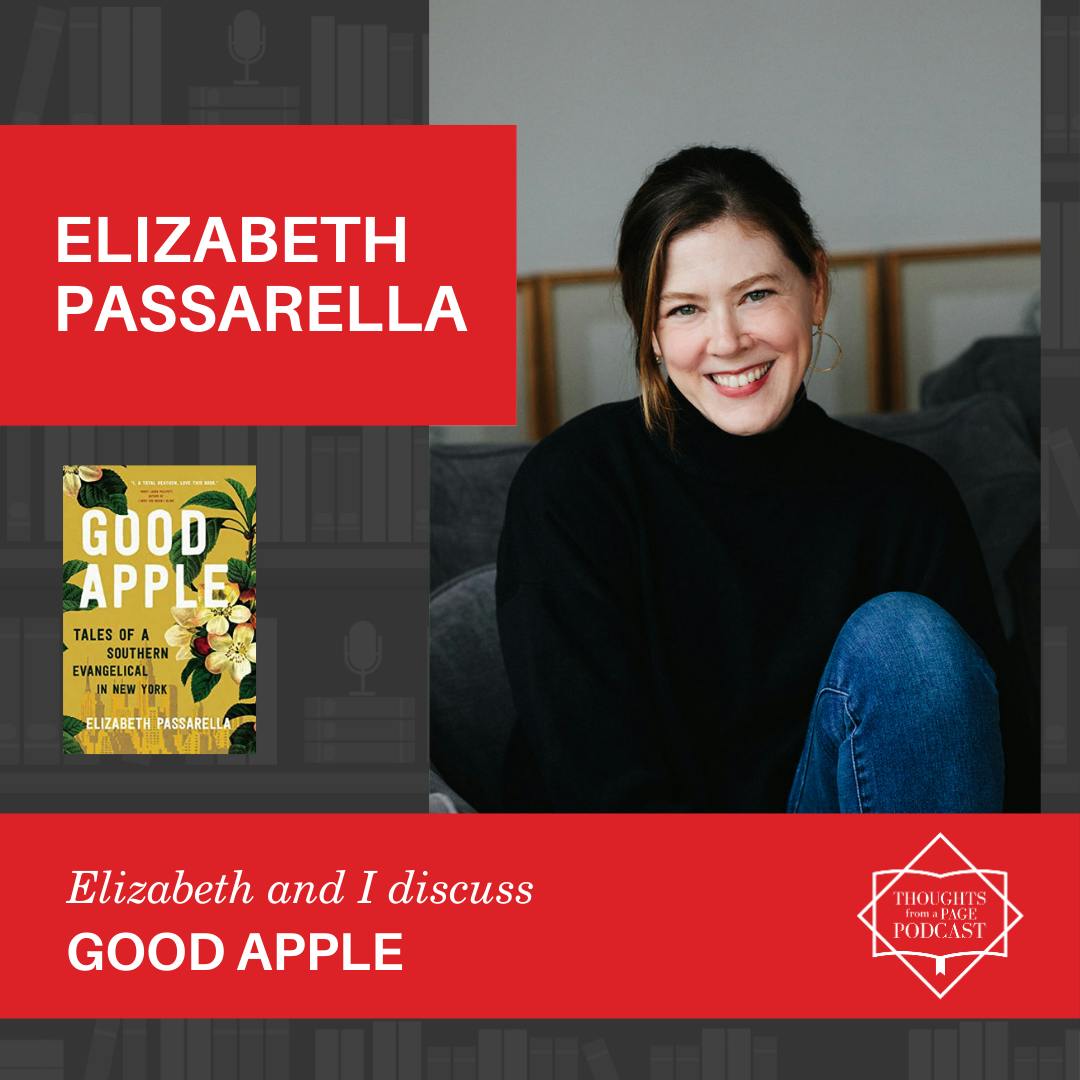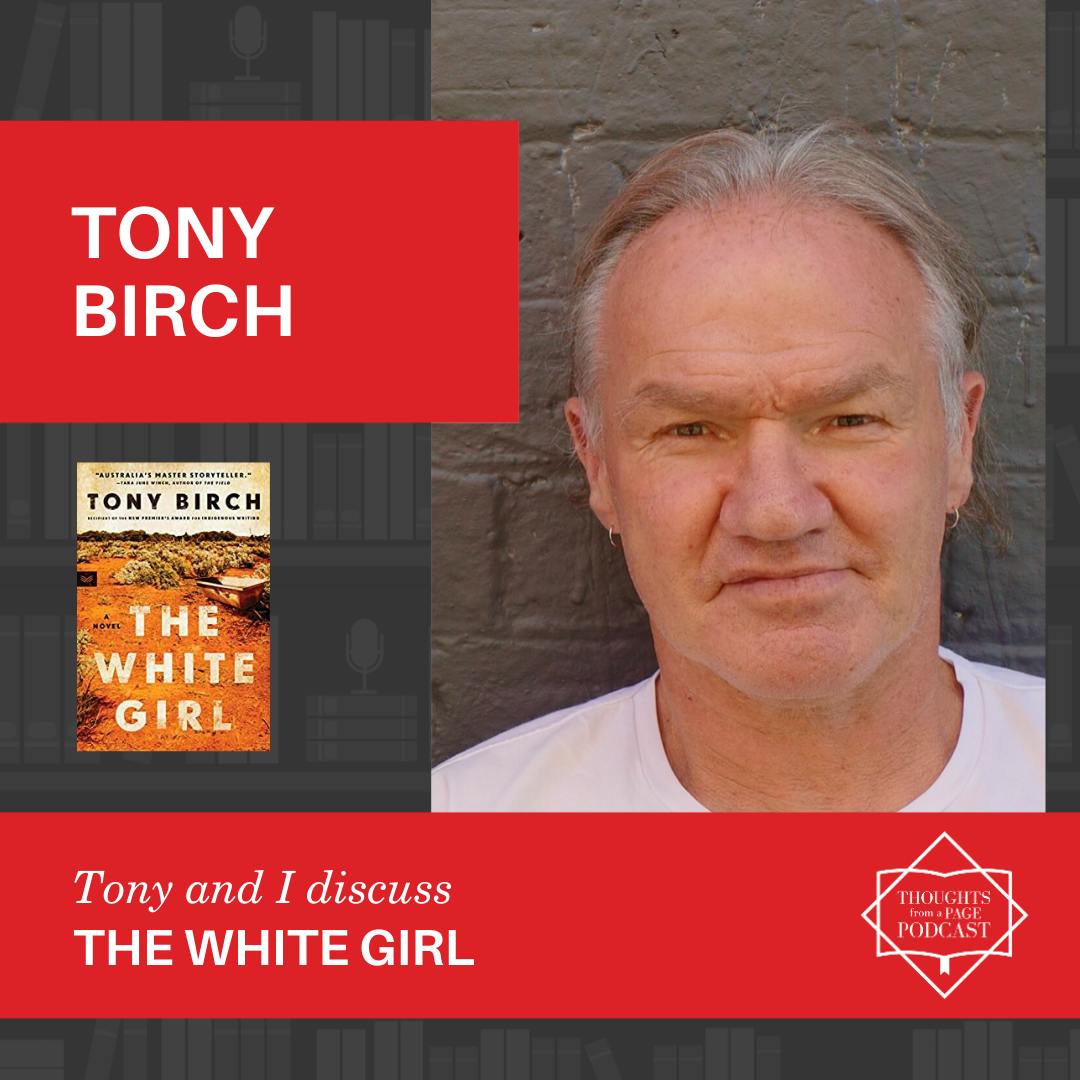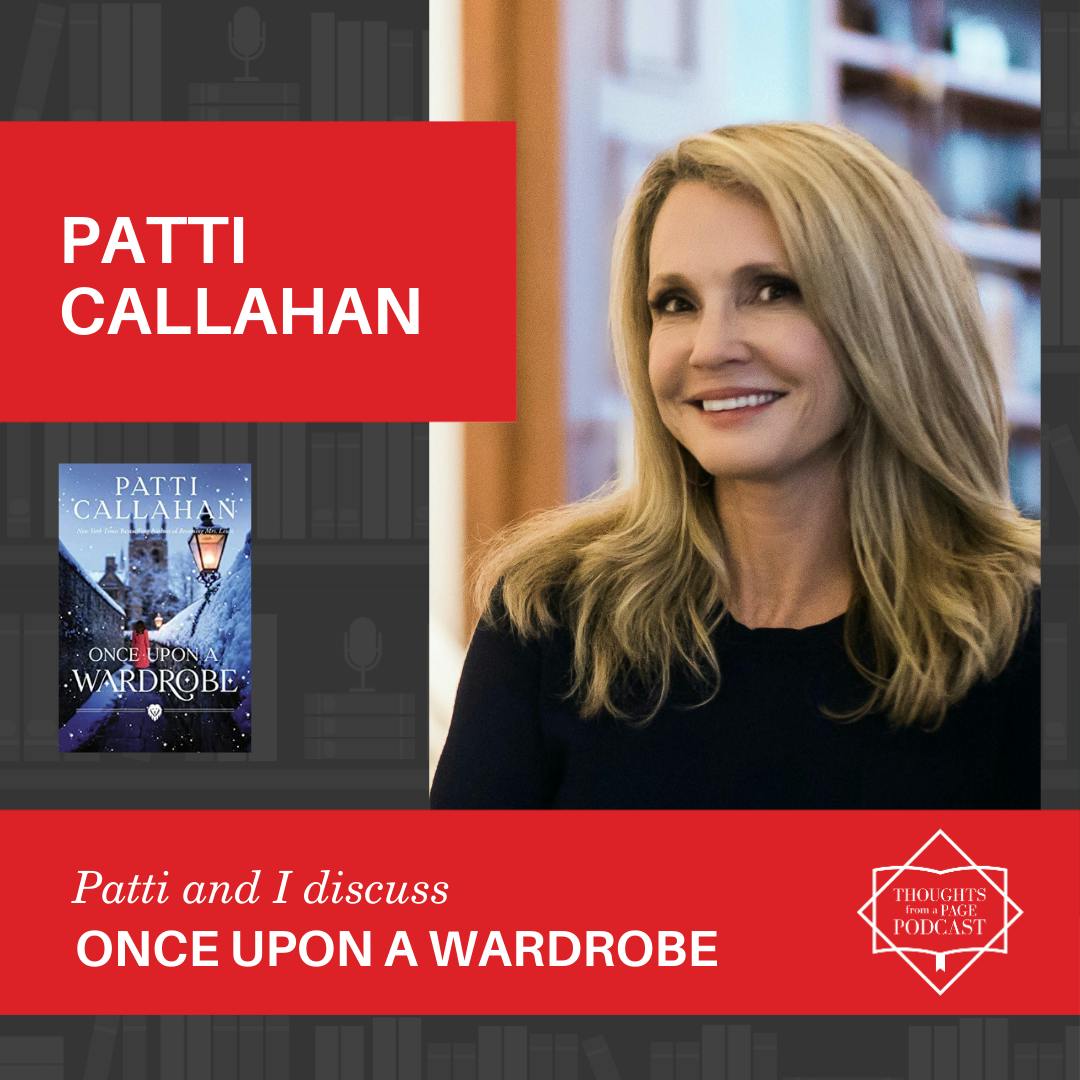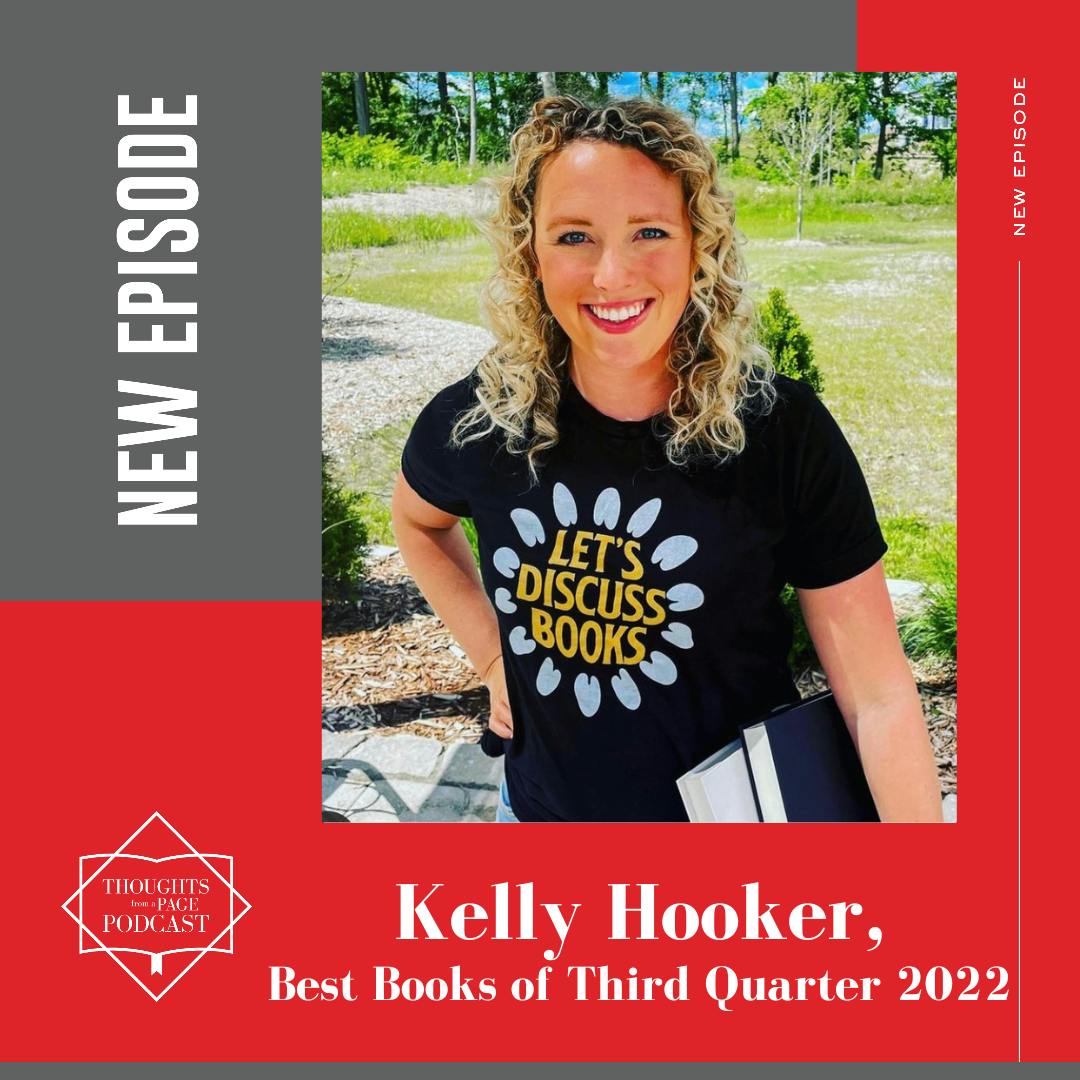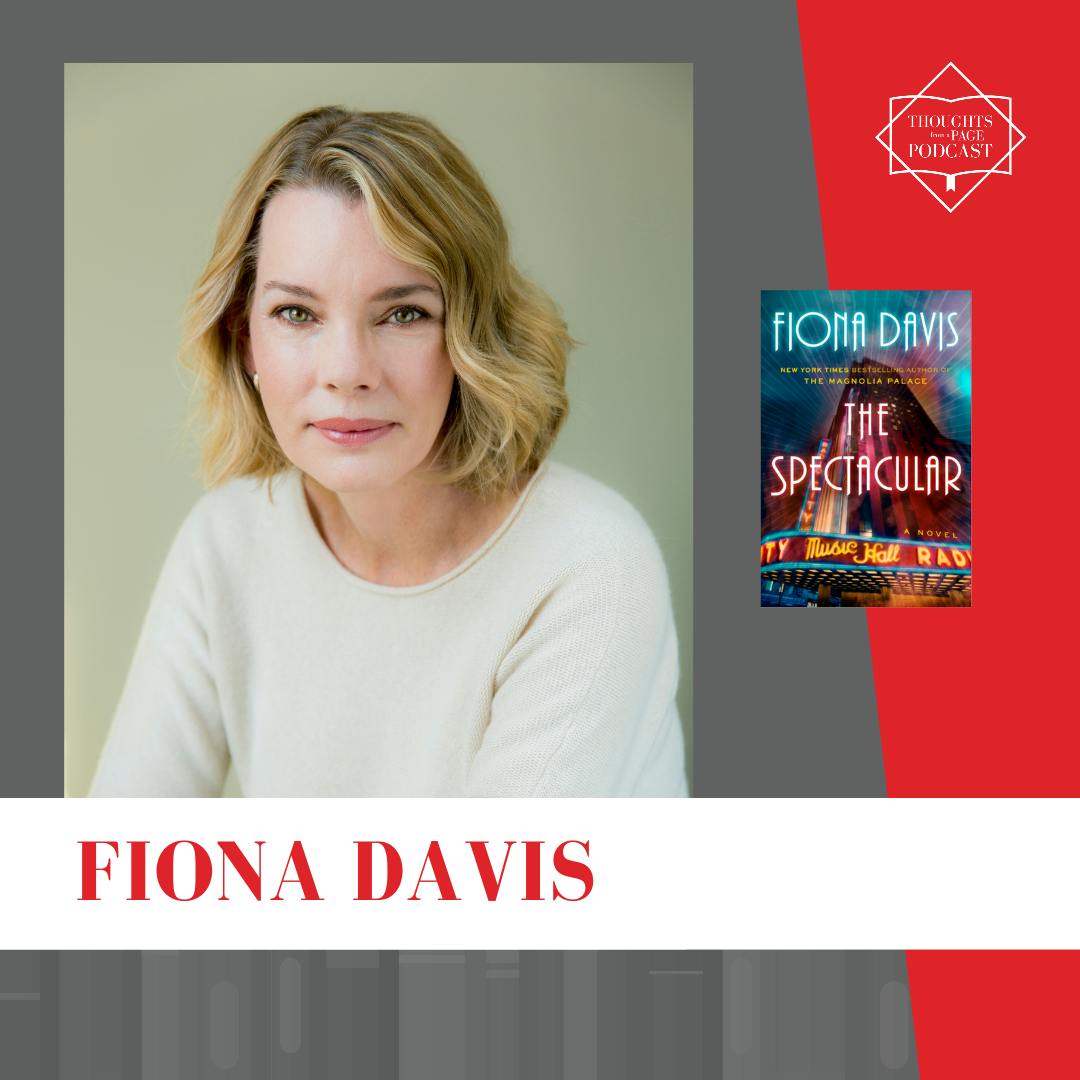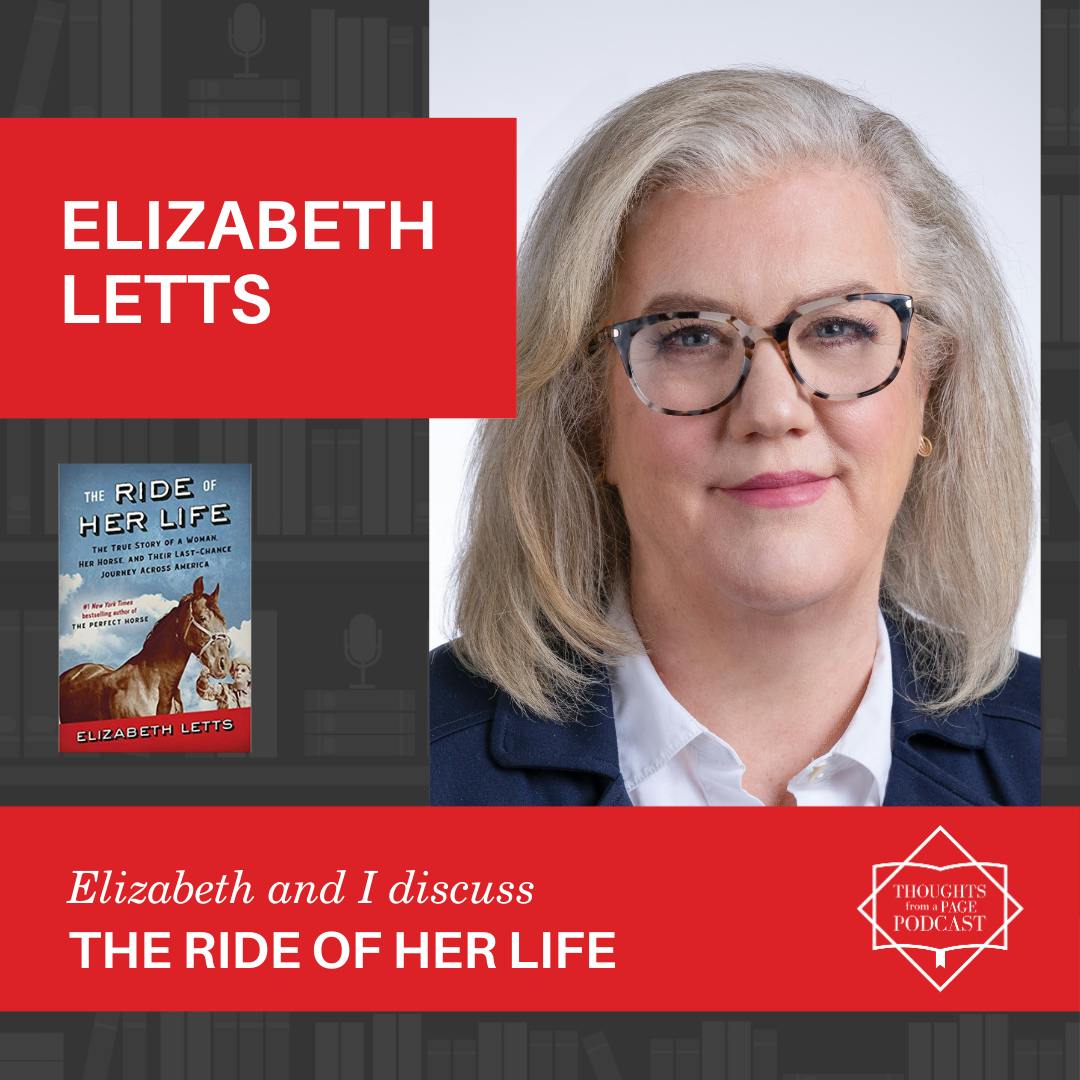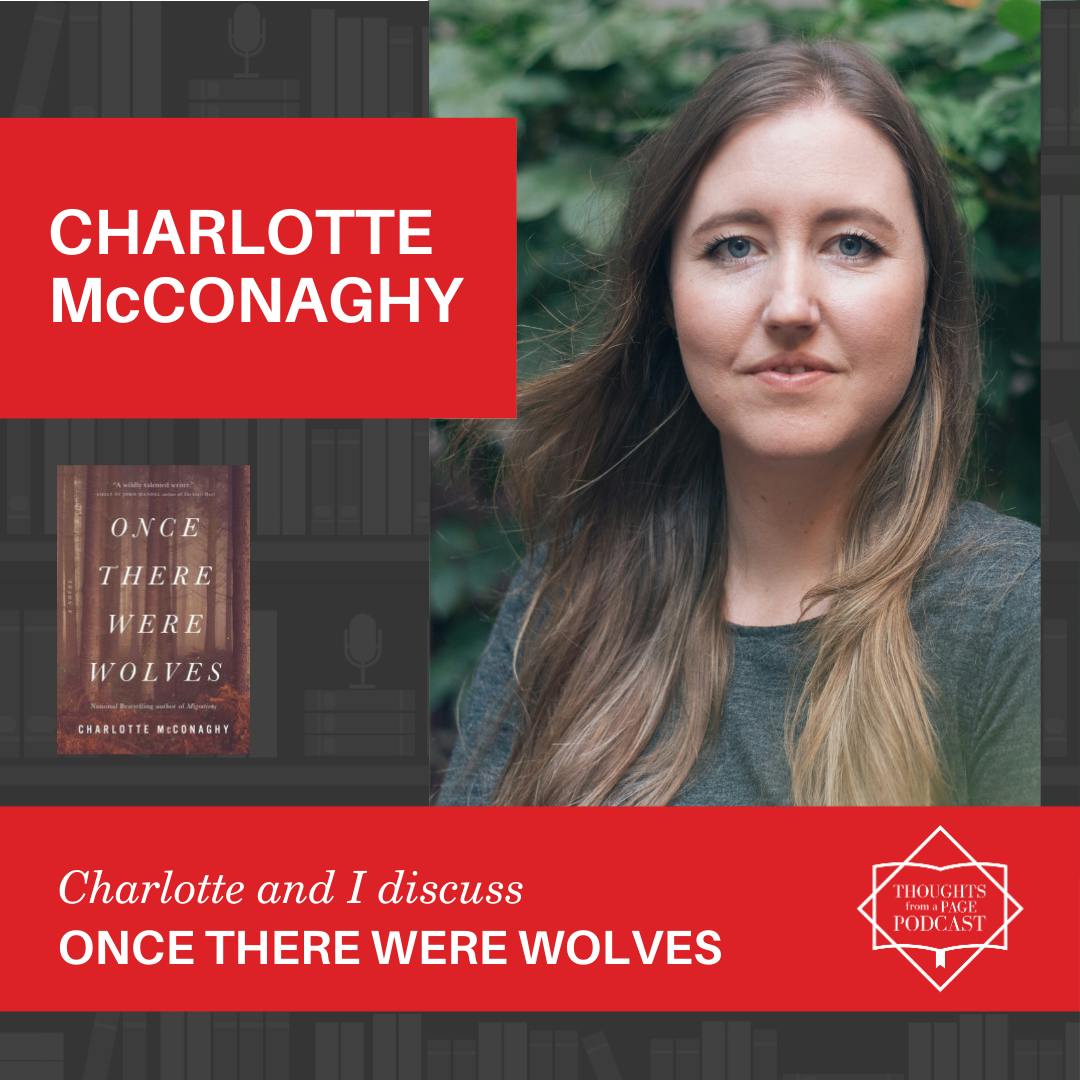Interview with Deanna Raybourn - KILLERS OF A CERTAIN AGE
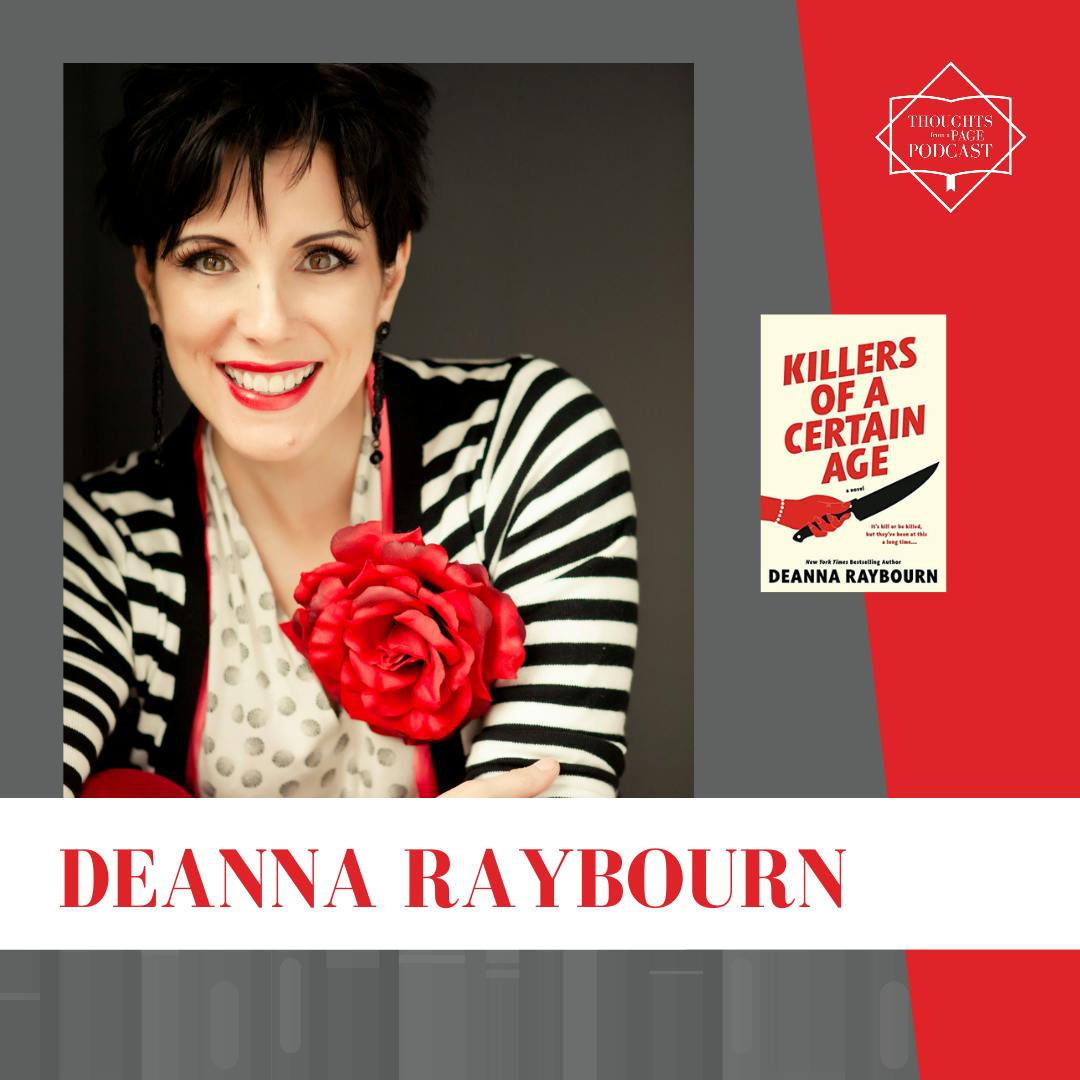
In this interview, Deanna and I discuss Killers of a Certain Age, where the idea for this book originated, writing a contemporary story, how creating this story differed from creating the Veronica Speedwell books, the title she wanted for the book, how society's perception of aging has changed in the last several decades, and much more.
In this interview, Deanna and I discuss Killers of a Certain Age, where the idea for this book originated, writing a contemporary story, how creating this story differed from creating the Veronica Speedwell books, the title she wanted for the book, how society's perception of aging has changed in the last several decades, and much more.
Deanna’s recommended reads are:
- Kismet by Amina Akhtar
- The Hacienda by Isabel Canas
Check out my Summer 2022 Reading List and my Most Anticipated Mysteries/Thrillers of 2022 blog post.
Support the podcast by becoming a Page Turner on Patreon. Other ways to support the podcast can be found here.
If you enjoyed this episode and want to listen to more episodes, try Peng Shepherd, Lucy Clarke, Katherine St. John, Joey Hartstone, and Julie Clark.
Killers of a Certain Age can be purchased at my Bookshop storefront.
Bookclubs is the premier organizational tool for new and existing book clubs and also provides great resources for individual readers to discover new reads or find a book club to join. Check them out!
Connect with me on Instagram, Facebook, and Twitter.
Learn more about your ad choices. Visit megaphone.fm/adchoices
[00:11] Cindy: You are listening to the Thoughts From a Page podcast, which is a member of the Evergreen Podcasts Network. My name is Cindy Burnett and I'd love to talk about books with anyone and everyone. While listening to my podcast, you will hear author interviews, behind the scenes conversations about various aspects of the publishing world, theme discussions with other book lovers, and more. For more book recommendations and a complete list of all of my interviews, check out my website, Thoughts from Apage.com and follow me on Facebook and Instagram at Thoughts from a Page in 2022. I would love for you to join my Patreon group. I offer at least two bonus episodes a month and a monthly advanced read and pre publication author chat. For those on Facebook, I host a special Patreon Facebook group where we all chat books. Thanks so much to those who already participate, and I hope you will consider joining us. Today I am chatting with Deanna Rayburn about her first contemporary thriller, Killers of a Certain Age. Deanna is a 6th generation native Texan with a degree in English and History from the University of Texas at San Antonio. Her novels have been nominated for numerous awards, including the Edgar,two RT Reviewers Choice Awards, the Agatha, two Dylis Winns and The Last Laugh. I adored Killers of a Certain Age. And I always loved chatting with Deanna. I hope you enjoy our conversation as well. Welcome, Deanna. How are you today?
[01:33] Deanna: I'm great. Thank you so much for having me back.
[01:35] Cindy: Cindy, I am so glad you're back because when we spoke last time, you told me all about this book, and I immediately was like, I must read it. The second it was ready, I got it and I read it and I loved it. So I was very happy to hear about it. I can't wait for everybody else to learn about Killers of a Certain Age as well.
[01:54] Deanna: Oh, I'm so happy you enjoyed it.
[01:56] Cindy: It was just so much fun. So let's start out with you giving readers who have not read it yet a little bit of a synopsis of Killers of a Certain Age.
[02:05] Deanna: Well, it deals with the question of what happens when four female assassins have to band together against the organization that would rather see them dead than let them retire.
[02:16] Cindy: That is a very quick synopsis.
[02:19] Deanna: It's punchy. Look, you have to give me a break here, Cindy. This is the only book I've ever, ever written that I have a good elevator pitch for.
[02:28] Cindy: Well, I can't wait to talk more about it because it's really different from the Veronica Speedwell series, and I can't wait to hear about what that was like writing it compared to writing that and everything.
[02:38] Deanna: It was so different. Yeah. It was completely outside of my comfort zone, and it has tested me and pushed me in every possible way.
[02:47] Cindy: Well, my first question was, did you have so much fun writing this book because as I was reading it, I felt like the book was so much fun, it had to be a ball to write it.
[02:56] Deanna: Oh, my God. It was absolutely bonkers. And I love writing, but I have never had this kind of fun writing a book. It's also probably the hardest book. Not probably. There should be no qualifiers in there. It is absolutely the hardest book that I've ever written, simply because of the fact that it's my first contemporary. I don't think it's full on thriller, but it is thriller adjacent with a lot of action sequences in it. It's the first one that I've done that has multiple time periods. It's the first one I've done that has a third person voice in certain sections. So basically, any possible way that I could scare myself when I was writing this book, I did it well.
[03:41] Cindy: I thought it was absolutely fantastic and I was checking out good reads before we hopped on and everyone else is saying the same thing, so you hit it out of the ballpark.
[03:49] Deanna: Oh, that is so lovely to hear. Thank you. Because the whole process was about three and a half years from start to finish. I was writing it in and around my Victorian mystery series, my Veronica Speedwell books, and I would do a draft and my editor would read it and she would point out that it wasn't quite right and I would cry and then I would write another Veronica book. But every time my editor gave me such great feedback, and every time she pushed me to work again at it, I knew it was making the book better. There was no doubt in my mind we were getting there, and she and I both knew it was going to be a long haul and it was going to be a really difficult process, but we both just kept plugging along and working at it. But a good heart in the end. I'm so glad it's done now that I can look back on it and say, oh, yeah, totally worth it. But if you ask me, that about halfway through the process. No, I was about ready to fling my computer against the wall.
[04:48] Cindy: You're like, Forget it, I'm not going to write this book.
[04:51] Deanna: Because there were so many questions that came up about, can I write this book? That's the internal monologue that you wrestle with when you're doing something that is so far removed from what you've done before is there's this massive crisis of confidence where you start to doubt your ability and everything else. And I knew what I wanted to write, but it was a matter of, was I a good enough writer to write the book? I wanted to? And so that was the question I was struggling with the whole time.
[05:25] Cindy: And while it is so much fun and very engaging, you do deal with weightier topics as well, which I really liked. I thought that added to the book a lot.
[05:34] Deanna: Yeah, for sure. It's not just a romp. And everybody needs romps. Don't get me wrong, I love a good romp. But there is underpinning it all the idea that these four characters were recruited in college. They've done one thing for 40 years, their entire professional lives. They've done one thing. They've done it really well. Now they're 60. And what are they without this job? What are they without this world? Because they can't stay in the field anymore. So it's partly them having the rug pulled out from underneath them. But it's also how they lean on each other as women in this four-sided friendship that they've had for four decades. And how they draw on their experience and how they draw on the idea that women become more invisible as they get older. How to turn that into a superpower and make that a strength instead of a liability.
[06:36] Cindy: Absolutely. Draw on the experience that they've had all of this time and the things they've learned. And so instead of becoming a liability or becoming invisible, people should be using all of the experience that they have.
[06:48] Deanna: Absolutely. And there are mentions in the book about how assassinations are conducted differently now than they were when these women were recruited in 1979. It was much more old school when they were trained. And so when they're thrown into a situation where they can't rely on characters like James Bond's, Q, they don't have a massive lab creating untraceable poisons for them or really cool gadgets. They've got to commit murder with basically household objects, things that they can acquire easily and manage to wield in lethal ways because they know what they're doing well.
[07:26] Cindy: And we talked about this when we spoke about the last Veronica Speedwell book, and this book came up. But the idea of what 60 looks like is radically different now. I think people are really starting to push back against this idea that 60 is ancient and walking with a cane and living in a retirement community. And I think that people realize, okay, we need to look at what a 60 year old looks like today versus what people's perspectives were two or three or four decades ago.
[07:54] Deanna: Absolutely. One of the things that completely rocked my world when I started working on this book is I had a different working title for it. Which I knew they were never going to let me keep. But it had a working title. Which was Hazy Shade of Winter after the Simon and Garfunkel song that was covered by the Bengals. Because. Of course. I'm in eighties teen. So that was a very formative song in both iterations. But I also love the idea that these women are kind of coming into the winter of their lives. And I was absolutely wrecked when the vice president of publicity for my publisher came up with the title Killers of a Certain Age and was making reference to the Golden Girls. And I thought, oh, my God. No. Golden Girls are like 75. That's totally wrong for this. And then I went and looked and realized that Bea Arthur's character was 55.
[08:49] Cindy: I know. I agree.
[08:51] Deanna: It absolutely rocked my world that we think of these women because they had gray hair and white hair, and there was the three of them. When you look at Betty White and Rumor Clanahan and V. Arthur, you kind of look at them and imagine that they were in their 60s or pushing 70s, but they weren't. They were supposed to be mid 50s. Well, that's not what mid 50s looks like now. Like I said, I was in 80s teens. So all the women who we grew up with as sex symbols and just these gorgeous young actresses like Jamie Lee Curtis and Diane Lane and Angela Bassett, they're all turning 60 now.
[09:28] Cindy: And they don't look like the Golden Girls.
[09:30] Deanna: They do not look like the Golden Girls. So we do absolutely have a changing landscape of aging. And there's this really interesting kind of liminal space that I don't think necessarily existed a couple of decades ago, and if it did, I missed it. But it's this kind of section of middle age that isn't ready to give up the ghost just yet. It's the older women who are maybe they have to take their calcium supplements, but they still go to Pilates and they're just kicking and screaming a little bit against the idea that every particle of aging has to descend right now.
[10:16] Cindy: Absolutely. And that there's so much that we can still be doing. And I don't mind reading about younger people, and that's wonderful, but it's really nice to read about older people than I am as well. So I just thought that was a ton of fun.
[10:29] Deanna: Well, that was another reach for me is because I've always written younger, because, of course, that's easy, isn't it? You've got that experience behind you. You can use that hindsight and say, oh, this is what it feels like to be 25. This is what it feels like to be 30. It was a stretch for me because when I started writing the book, I was 50. And so these characters were exactly a decade older, and I had to kind of reorient myself as far as what was my childhood culture would have been, their teen culture, and what kind of an impact did that have on them and what were their references and what were their childhoods like and kind of figuring out? Because it's really interesting when you look back on the last couple of generations. My parents were both born right after World War II, and so they are boomers my generation grew up with so they saw like, Bay of Pigs. They saw all of that stuff. They had Vietnam. My generation was very much Cold War. We had the first Gulf War when we were in college and then my daughter's generation does not even know what the Iron Curtain was. Hardly. Because that threat that was always in the back of our minds about God, what's the Soviet Union going to do, simply doesn't exist in the same way for them. So every generation kind of moves through the world a little bit differently. Their compass points to a slightly different true North, I think. And so that was an interesting shift for me because like I said, it's very easy to look backwards and see how the ones coming up younger than you are adapting to things when you've got this slightly broader perspective. But looking ahead to see how the generation ahead of you has a different perspective is sometimes really disorienting.
[12:19] Cindy: Right? The things that shaped them are going to be a little different than the things that shaped us because they are a decade ahead of us.
[12:25] Deanna: Yeah, I mean, it's been really fascinating to me to see my mom is 76 and how she has dealt with the Pandemic has been really different than how I have. She takes her precautions and she does the things that she needed to do as far as locking down and she still masks and all that good stuff. But as far as the complete mental health freak out that I had about it, she didn't have. And when we talked about it, she said, you have to remember, my generation had polio. Like we saw massive public health scares. So we have been through something similar enough that we can kind of extrapolate that and figure out a way to put it in perspective and say, well, yes, this sucks and while it sucks, we're going to get on with our lives and do what we need to do safely.
[13:14] Cindy: And come out the other side. Okay, yeah.
[13:16] Deanna: And come out the other side. I think a lot of my Gen X compatriots and I were just sitting there kind of with our mouth hanging open for the first several months, if not year going, what is happening? Because this was a different thing for our generation to deal with.
[13:40] Cindy: Well, it's been so interesting in my household talking about generational things because we watched Stranger Things as a family and nobody had watched it until this year. So we started with season one and just watched it and got caught up until season four and talking with my kids about so many of the things from the 80s, like Blockbuster Video and Be Kind, Rewind and just all the different things that we live through. The Soviets, they were like, why are the Russians the bad guys? And we had to explain all of that. That's what made me think about it when you said that, trying to say, well, it was very different then and the wall coming down and just all these different things that are referenced in Stranger Things. It's been really fun to kind of go back and talk with them about some of that. But it does completely hammer home your point that every generation has different things that stick with them while they were growing up, the things that were happening and what was occurring, and those kind of seminal things that will never go away for us.
[14:33] Deanna: Yeah, I mean, every generation has its own existential threats. It's just a matter of what they are and how you've learned to navigate them. Well, speaking of Stranger Things, I actually feel like a really good mother because I made sure my daughter knew who Kate Bush was long before Stranger Things came out. So I felt that was a huge win.
[14:52] Cindy: As a mom, I hate to even say this, but I only knew Kate Bush's name. I had no idea what she sang until that song became popular. So I'm not quite as good a mother on that front. I know all the rest of the songs.
[15:06] Deanna: Again, it's an 80s teen thing.
[15:08] Cindy: I was in 80s teen and I did not know Kate Bush.
[15:12] Deanna: Pat Benatar covered weathering heights, and that's how I found Kate Bush because it was via Pat Benatar.
[15:19] Cindy: Well, somehow I just missed that entire so they're like, Kate Bush, tell me about her. I was like, I wish I could, but we're going to have to use the Internet.
[15:28] Deanna: You know what, that's excellent. And I'm sure there are about 1000 pop culture references from the you're familiar with that completely passed me by.
[15:36] Cindy: Well, and that is definitely one of those things without social media during our time and TikTok and those kinds of trends that just literally fly through like wildfire. Now, probably somewhat, we all knew, but depending on where you are in the country and what exact age you were, some of it may have just completely passed us by.
[15:54] Deanna: Oh, yeah, absolutely. And also how dialed into MTV you were. Yeah, because if you watched them at MTV, you caught most of them, I feel like. But yeah, it was a completely different way of navigating culture.
[16:10] Cindy: Well, and that's another hilarious conversation I've had with my kids. They're like, you just sat there and waited until your favorite video came up. Like, you sat through all these songs you didn't like. I was like, we did.
[16:21] Deanna: Did you explain to them about how you had to record things off the radio?
[16:26] Cindy: Yes, we were just talking about that.
[16:28] Deanna: Oh, my God, Casey Kasem will not stop talking. And I've missed the intro to the song.
[16:33] Cindy: Exactly. They're like, we're explaining mixtapes because the whole mixtape thing and Stranger Things. And so we explain that and how you had to record off the radio and how you wanted to get to the next song. You just had to forward and hope you can get to the right. You had to go back and forth and back till you got to the beginning of the song. I said we were all a lot more patient when it came to these things.
[16:51] Deanna: Yeah, I remember one of my best friends would sit down for me because she was a lot more patient than I was, and she would sit down and if there was an album that I loved that didn't have liner notes in it, she would write out the lyrics for me. And it entailed, like, stopping and backing up on the tape recorder a thousand times to get a line exactly correct. And then she would fold it all up in one of those notes that was, like, super elaborate origami that was excellent.
[17:20] Cindy: That's a good friend.
[17:21] Deanna: She was an excellent friend, yes.
[17:25] Cindy: Well, where did the inspiration for both the museum and the four women come from?
[17:30] Deanna: I wish I had something really specific and cool that I could point to and say, this is where it came from. The whole idea of the book itself started as an invitation for my publisher because my editor called me one day about three and a half years ago and said, hey, I don't know if you'd be interested, but word has come down. We were talking and we would really love to see a book with some badass older women in it. And your name immediately came up as the person who should write something like that. And it can take any form you want, it can be any plot, whatever you like, just run with it and let us know what you'd like to do. And so I thought about it and I came back and I said, yeah, I would love to do this, and I want them to be assassins and I want it to be contemporary. And I had them up until the point I said I wanted it to be contemporary. And I think my poor editor about fell off the chair because I had never written anything more contemporary than they were shocked that I wanted to do something that was set in the here and now. And they trusted me, thank heaven, to do it. But they kept very kindly and very kind of deftly coming back and saying, you sure you want to do contemporary? Because you can do historical if you want to do you can do anything. No contemporary, please. And they agreed, bless them. It was a massive leap of faith on their part. And so I knew that I wanted this setting. I wanted it in the here and now. And I loved the idea of a group of them because up to this point, I've always written first person, a single character who usually has one sidekick/love interest. And I loved the idea of writing a quartet of women because for us, that always seems to be a really interesting dynamic, whether it's Little Women or Sex in the City or Golden Girls. The idea of having four women together and how those friendships kind of cross pollinate and what exactly the by play is between. Because when you get four women together there's usually always two and two who will get along better, and sometimes it changes up, and sometimes it's three against one, depending on if somebody's having a really difficult time and taking out her ish on everybody else. And so I really wanted to play with that. So I had the contemporary setting. I knew I wanted four women, I knew I wanted assassins. And I just could not shake the idea that the main character would be someone who is very similar to a lot of extremely strong women I've known throughout my life, and particularly when I was growing up in Texas. I have a lot of extended family, female relatives, friends who maybe didn't have the easiest start and who had to kind of get along with their wits and their grit and their determination and their courage. And I thought, yes, that is a really good basis for Billy. So there are lots of little kind of private homages in her character to people I have known. She's not based on any one person in particular. But I have borrowed some aspects of who she is just to kind of flush her out as a way of kind of thanking the universe for putting those women into my life. Even if it was really briefly and even if it was just someone I heard about because she was a friend of a friend who was doing something really kick *** and dynamic. And once I had Billy, the others kind of fell into place, and I knew who they were because they're all foils to her and they're foils to each other. And then I did not want them working within an organization. I wanted them working outside of an organization. And so that is how the museum came about, because the idea was this is an organization that had a very specific mandate when it was formed, but it has drifted a little bit and it's no longer doing 100% what its original mission statement was. And so kind of the idea that you can form an effort with really great intentions, and sometimes those intentions are carried out to the letter forever, but then sometimes they have to respond to changing times. And how do you adapt when the world is changing, when you are coming together because you have certain ideals? Can you hang on to those ideals or do you have to alter those two?
[22:23] Cindy: And what happens when leadership changes? I think you touch on that a little bit, and I think we've seen that play out in the world a variety of times.
[22:31] Deanna: Oh, absolutely. One of the things I think we see a lot is people who have certain goals and certain ideals and certain principles can become very flexible about those things when it suits them too. And what is that point for a lot of people? I'm very interested in at what stage we become hypocrites? How inconvenient does something have to be before we say it's not really one of my principles anymore. At what point do we abandon a question of morality or ethics? What does the enticement have to be to let go of it? Or is it just a matter of it asks something of us. We have to make some sort of sacrifice to live up to it, and can we do that?
[23:19] Cindy: I think that's exactly right, and I thought that was an interesting point you made in the book. And as people's lives were changing and maybe their roles in the museum were changing, suddenly the things that they held dear to them maybe weren't so dear anymore.
[23:33] Deanna: Exactly. And the museum, just because we haven't touched on this yet, and I completely neglected to answer this part of your question the museum is the organization that they work for. That's the nickname for this group that was founded in the aftermath of World War II that basically existed to commit political assassinations. And the idea was to take out people who continued to espouse **** ideology. It was basically organized to hunt down the Nazis who had gotten away after the war. And it was formed by a group of people who were kind of cut loose from their intelligence work after the war and didn't really have a place to go with the skills that they had learned. And they were disillusioned by the fact that there were so many people who were able to get away with the atrocities that they'd committed, and they were interested in doing nothing more than settling scores. And so they formed an entire organization that existed just to kind of bring in some people on whom they placed bounties for activities and war crimes that they committed.
[24:46] Cindy: And I think it must have just been so entertaining to create your own agency like that.
[24:51] Deanna: Oh, my God, so much fun. Yeah, absolutely. And that's part of the reason I wanted to make them assassins, because I felt like if I made them spies, then you're kind of limited. You're dealing with MI-6. You're dealing with CIA. If you're making them international law enforcement, you're dealing with Interpol. And I wanted them to be outside of that. I did not want to write, above all, a procedural. I wanted them to have an organization that I created that had a very specific purpose that was basically it's. People doing dastardly things for a good cause. And that, of course, opens a whole different ethical can of worms. Can you really do terrible things for a good reason? And if you do, then are they terrible things?
[25:45] Cindy: With respect to that, I think some people can get behind the idea of retribution for the Nazis because that is such a large, horrific time period and so many just absolutely awful things happened. But I think when you run out of those people and they've all died or you've gotten them or whatever it is, then what do you turn to? And does your mission suddenly become a lot murkier?
[26:08] Deanna: Yeah, exactly. And we see throughout the book that there have been other targets and there have been other purposes to their missions. One of which was they have recovered artwork. Which isn't their primary brief. But looted artwork during the war was a part of what they did because it enabled them a lot of times. If they were able to trace the art. They were able to find the person who had looted it. And then that gave him someone to assassinate. So they kind of approached their work from a few different angles to find the people that they were looking for. And by the time these women are recruited in 1979, they're kind of running out of Nazis to find and so they are recruited for this kind of grand purpose that you feel like everyone can agree with, because I remember being a kid at that time, and Wonder Woman was on, and it started off when the Wonder Woman TV series came on. Wonder Woman's hunting Nazis. It set in World War II. And so at the time, that's still something that's right there in popular culture, and it's still fresh enough that these women would have been, hell, yes, sign me up. Let's go do that thing. And then it's not too long before you realize, okay, so there's not quite as many hanging around still as we'd hoped. And how that? When you've got this entire organization that exists to do this one thing, what do we do then? Do we throw in the towel? Or do we realize, hey, you know what? Those are not the only bad guys around. Maybe we should kill a few other people.
[27:51] Cindy: But I think that determining of, okay, what is a bad guy? All of that can get a lot more complicated when you're not tied to a specific thing like the Nazis during World War II.
[28:01] Deanna: Absolutely. And that gives this really wonderful gray area to play around in because you're not looking at because throughout history, there have always been the Mafia killings in Italy and even into Chicago are based on, hey, I'm trying to do this thing. This is my business. You're interfering. I'm going to get rid of you. It's a turf war because people are looking to make a statement. It's not an ideological thing as much as it is, I'm going to demonstrate my power because I can do this thing, and I just want people to leave me alone so I can get on with making money, and I want respect, and so I'm going to show you what I can do, and I'm going to get that back. And this is a completely different thing because they're not killing for profit. They're not killing for any other thing than to try to make the world a better place. And I feel like the idea that they're recruited in college, could you recruit anyone older than a college. Student to do that because I feel like in college, you still have that kind of naivete that you can be pulled into this type of a situation where you feel like you could be an instrument of justice and making the world a better place. And it might take you a really long time then to turn around and say, wait a minute. Are we the bad guys?
[29:25] Cindy: Yeah. Exactly. Which one are we here? Exactly.
[29:28] Deanna: Yeah.
[29:29] Cindy: I think that makes perfect sense. And I thought a lot about it as I was reading your book, so it is definitely a thought provoking topic.
[29:36] Deanna: Yeah. But it was hopefully one of those things that I tried to wrap up in enough action and enough kind of interplay and friendship dynamic that I was trying not to wallop readers over the head with. That is what I'm saying.
[29:53] Cindy: Absolutely. I think generally it is such a fun book. I loved it. But I liked that there were some weightier things to consider as I was reading it. So to me, it was the perfect balance.
[30:03] Deanna: Oh, that's very kind. Awesome. Because that's what I was going for. Thanks for that.
[30:09] Cindy: Well, what about writing this book versus writing the Veronica Speedwell series? Was it very similar? I mean, we've talked about different time frames and all of that, but the actual writing of it, what was that like?
[30:20] Deanna: Well, because of the fact that I'm working on I just finished writing the 8th Veronica book, and I'm literally sitting down with my editor this week to talk about Veronica nine. This is a world. And with every book being 95,000 words, I've written a lot about Veronica's world. So it's very easy to kind of get back into her universe. The world is really fully built. It was a very different thing to create this world for my killers because everything becomes a decision. Everything is up for grabs. When do you set it exactly? Do you deal with the pandemic? Because that began to happen while I was writing. And what do you do about who's been in charge of our governments? Do you use actual people? Do you talk about them? Or do you pretend to have a slightly alternate reality? And so those are all questions that I take them for granted when I'm writing the Veronica books, because I know exactly what her world is. I made those decisions eight years ago when I started the series. Now having to sit down and decide all of that. But to do it in a place where the technology is completely different. For starters. That one just absolutely blows your mind when you go from writing historical to writing contemporary and you realize. Oh. My God. Because I've read plenty of books that were set in the you absolutely could not set them now because one cell phone call completely obliterates the plot. It requires a completely different way of approaching the universe, even. And so I had to kind of go back to the very, very beginning of how to build that world and make all those decisions, which is a tremendous amount of work. It's a tremendous amount of fun too. I collaged a lot. I had one entire wall of my study where I just had images taped up. I had sent off for there's a big scene towards the beginning of the book that set on a small luxury cruise liner. And so I had sent off for all the gorgeous thick, glossy brochures that the cruise line sends you. And I knew exactly what the ship looked like because I had it taped up. And I had so many pictures of who these women like, what their faces look like, what they were wearing, what the weapons were, and hotels and houses. There's a small stately home in London, or outside of London on the south coast of England that plays a part in this. And I had images of that taped up everywhere. And I had floor plans and I just went completely down the rabbit hole. It looks like one of those great you know, those crime scene walls that have the red yarn? Yes, it looks exactly like that. I had a murder wall. It was amazing. And I had actually been to several of the places that I wrote about. There's a discussion of there's a place in the Caribbean and there's a place in New Orleans, and there are a couple of places in Europe. And I've actually been to some really specific locations that I talk about in the book and they were so much fun. So I got to kind of mine those memories and pull all of that stuff in. And like I said, it was just a constant balancing act between, oh, my God, I'm having a time of my life and holy ****, this is so hard, can I do this? And it was really always kind of swinging back and forth between those two extremes.
[33:53] Cindy: And I would think, as you were writing, you might have to do additional research because you would suddenly think, well, I've got the boat down or I've got this home down. But either a time period question would come up or a location question or something that would require a little more work.
[34:08] Deanna: Oh, absolutely. Now, that happens to a certain extent with the Veronica books as well.
[34:12] Cindy: True.
[34:13] Deanna: But I've also learned a very efficient way to write the Veronica books where I don't have to know everything when I start the book, and I will. A lot of times when I'm working on a rough draft, just open bracket and put a note to myself like, insert name of tree in leaf in September in the north of England, close bracket. And so I know the exact research question that I have to go hunt down when I go back through the manuscript with this one. It was really past me, was not very kind to future me because I would leave notes like, make this seem better.
[34:53] Cindy: You're like, what did I have in mind?
[34:56] Deanna: And I'm like, okay, well, that's not specific. And so I would have to go and do some really weird searches to find information that I needed and kind of run down some of the information that was required to get this book where it needed to go. But every pass at it, every draft got me closer. And that was the one thing that I kept hanging on to.
[35:23] Cindy: Well, it worked, as we have discussed, so that is wonderful. I kept thinking the entire time I was reading that this would make such a great miniseries or limited series, whatever they call them now as we flash back to the eighties with miniseries, I think it would be so much fun. Do you have any ideas of who you would want cast if that happened?
[35:42] Deanna: I will say that because I had some images taped up as I worked. I kept all of those on the wall except two that I taped directly to my computer monitor. And those were the two faces of Billy. Billy as a 20 year old getting recruited for the organization and Billy as an almost 60 year old. And it was Florence Pew for Young Billy and Diane Lane for Mature Billy.
[36:14] Cindy: She's one of my favorites, and I think it's probably because we are from the so I watched her in all of the movies when she was a lot younger and then her career has progressed, so that's perfect. She would be wonderful for Billy.
[36:27] Deanna: Yeah, I think she's about 58 right now, so she's close enough. And I remember the first time I ever saw her was I want to say it was I can't remember if it was Cotton Club or Eddie and the Cruisers, but I remember looking at her just thinking she was absolutely luminous. And to see her still having this wonderful career, actually, that was one of the things. Oddly enough, it was Diane Lane who actually kind of gigged this irritation in me that we don't see more women that age doing action roles. Because I was at the movie theater watching one of the Superman movies that has come out with Henry Cavill in the last however many years. And she's there and she's playing Kent's mom. And I'm thinking, where's her cape? Why isn't she getting to choose the cool stuff? It's Diane freaking Lane. Come on. And then I had the exact same thought about Marisa Tomei in the Spiderman movies. And so I was like, okay, clearly this is a thing with me. I'm looking at these women who really ought to be out there kicking *** and doing cool stuff for themselves. They don't just need to be the aunt or the mom or the erstwhile companion. They need to be kind of the authors of mayhem and destruction themselves.
[37:54] Cindy: See, I'm telling you, this would be so great for the screen.
[37:57] Deanna: It would indeed.
[37:59] Cindy: Well, fingers crossed. Well, before we wrap up, what books have you read recently that you really liked?
[38:05] Deanna: Well, I am actually going to tell you what I am excited to read and getting ready to read because I am getting ready to go on vacation. I get to go for four days, which doesn't sound like a lot, but it's a huge amount to me. And I am taking with me Kismet by Amina Ahktar, which is a thriller set in a wellness resort in the desert. And I am so bonkers into that idea, I can't even begin to tell you. And the other one I'm really excited about is Isabel Canas’ The Hacienda because I cut my teeth on gothic novels like Victoria Holt and Mary Stewart, and this is a Gothic in that vein. It's 19th century, but it's set in Mexico, which I think is a brilliant setting for a Gothic, a traditional Gothic. So I'm really looking forward to those two books.
[38:56] Cindy: I've heard so many great things about The Hacienda. I mean, just one good review after another and I don't know, Kismet. I'm going to have to look it up.
[39:04] Deanna: Yes, it just came out, actually. It's not pub yet. The reason I knew that it was out right now is because it was an Amazon first reads thing, but it's actually pubs. I want to say the first week of August.
[39:21] Cindy: I think that's how they do their first read. They come out like the first of the next month. So you get it exactly one month early or whatever if you grab it.
[39:28] Deanna: Yes.
[39:28] Cindy: Okay.
[39:28] Deanna: Yes. And I am very excited to read both of those.
[39:32] Cindy: Well, they both sound wonderful, and I hope you have a fabulous, fabulous vacation.
[39:35] Deanna: Thank you.
[39:37] Cindy: Well, thank you, Deanna, for coming on the Thoughts from a Page show. Again, it's always so much fun to chat with you.
[39:42] Deanna: Absolutely. My pleasure, Cindy. Thanks so much.
[39:46] Cindy: Thank you so much for tuning in today. I really appreciate you taking the time to listen to my podcast. I want to quickly share about this wonderful company I am now partnering with. I am always looking for entities that promote and highlight books and recently came across Bookclubs, a company who provides all sorts of resources for established and new book clubs as well as individual readers. My own personal book club recently signed up on Bookclubs, and the group has been impressed with all of the great tools the site and app provide. The Bookclub's website is linked in my show notes and I hope you will check them out soon. Also, if you like my show, I would be so grateful if you would tell everyone you know about it and rate it on whichever platform you listen on. It truly makes huge difference and really helps the show grow. The book discussed in this episode can be purchased at my bookshop storefront, and that link is also in the show notes. I hope you will check out some other Thoughts from a Page episodes and have a great day.

Deanna Raybourn
author
New York Times and USA Today bestselling novelist Deanna Raybourn is a 6th-generation native Texan with a degree in English and history from the University of Texas at San Antonio. Her novels have been nominated for numerous awards including the Edgar, two RT Reviewers’ Choice awards, the Agatha, two Dilys Winns, and a Last Laugh. She launched a new Victorian mystery series featuring intrepid butterfly-hunter and amateur sleuth, Veronica Speedwell, in 2015. Veronica’s seventh adventure, AN IMPOSSIBLE IMPOSTOR, is a February 2022 release, and the series is contracted through 2022. Her first contemporary thriller will be published in the fall of 2022.
New to Thoughts from a Page Podcast?
Here are some great episodes to start with.























